Even though we technically speak the same language, British and American English are full of surprises.
You might think you understand what someone means until they mention jelly, pants, or cookies, and suddenly you’re not so sure.
Some of these American words sound completely normal at first, but they mean something entirely different on this side of the Atlantic.
Here are 20 everyday American terms that regularly leave Brits raising an eyebrow (or quietly Googling).
Pacifier

American parents reach for a pacifier, while British parents hand their baby a dummy.
It’s the same object: a rubber or silicone teat used to calm and comfort infants.
“Pacifier” sounds a bit technical to UK ears, but it’s the go-to term across the US.
You’ll find them in every American baby aisle and on every new parent’s checklist.
Examples in sentences:
- “The baby won’t sleep without his pacifier.”
- “She lost the pacifier somewhere in the car.”
- “They packed extra pacifiers just in case.”
- “He spat the pacifier out after a few minutes.”
- “Pacifiers can be a lifesaver on long flights.”
Scallions
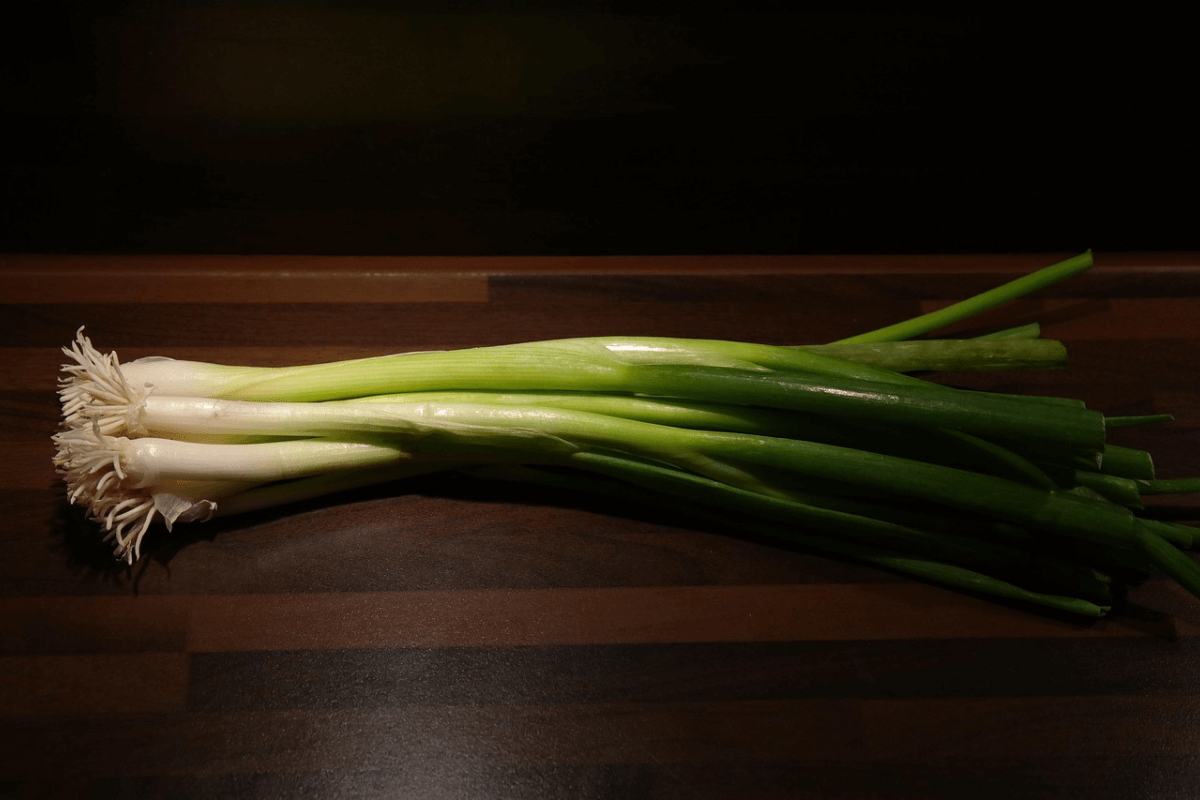
Scallions appear in countless American recipes, from salads to stir-fries but if you’re British, you’ll know them as spring onions.
They’re the same thing: long, thin green onions with a mild flavor.
The term “scallion” is rarely used in the UK, which can make American cookbooks a bit confusing.
Despite the name difference, they chop, cook, and taste exactly the same.
Examples in sentences:
- “Garnish the soup with chopped scallions.”
- “She added scallions to the noodle dish.”
- “Scallions give the salad a fresh crunch.”
- “He cooked the eggs with a handful of scallions.”
- “Use scallions instead of regular onions for a lighter flavor.”
Biscuits

This one can really throw British people off.
In the UK, a biscuit is something sweet and crunchy, usually enjoyed with tea.
But in American English, a biscuit is a soft, fluffy bread roll, often served warm with butter or gravy, especially in the South.
Imagine expecting a custard cream and being handed something that looks like a scone.
It’s a tasty misunderstanding either way.
Examples in sentences:
- “We had biscuits with gravy for breakfast.”
- “These biscuits are best served fresh out of the oven.”
- “She makes amazing homemade biscuits for Sunday dinner.”
- “Would you like a biscuit with your fried chicken?”
- “Biscuits and cornbread were on the table.”
Cilantro
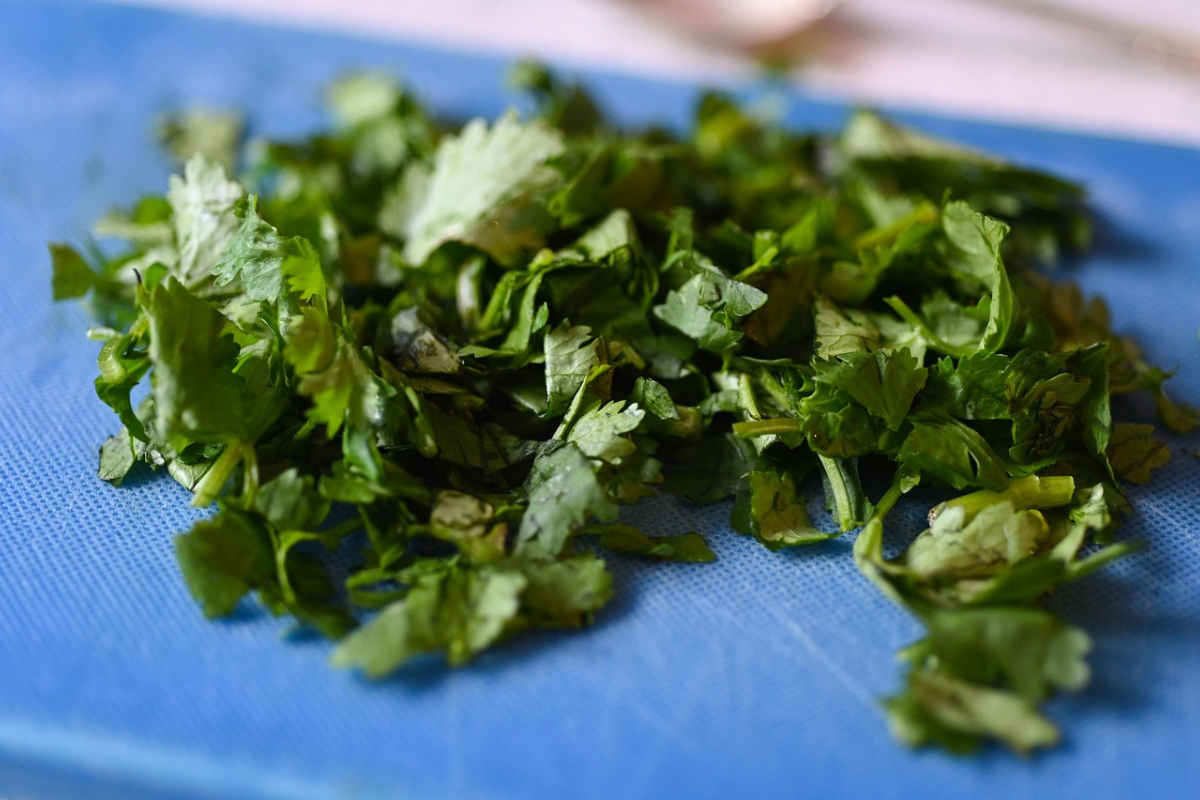
In the UK, Cilantro is known as coriander for both the fresh leaves and the dried seeds.
But in American English, the leafy part is known as cilantro, while coriander usually refers only to the seeds.
This can lead to some confusion in recipes or on menus.
The flavor is the same, but the name change often catches British cooks by surprise.
Examples in sentences:
- “This salsa has fresh cilantro in it.”
- “Do you like cilantro? Some people think it tastes like soap.”
- “I added chopped cilantro to the tacos.”
- “Cilantro is a common ingredient in Mexican cooking.”
- “She garnished the curry with cilantro leaves.”
Eggplant
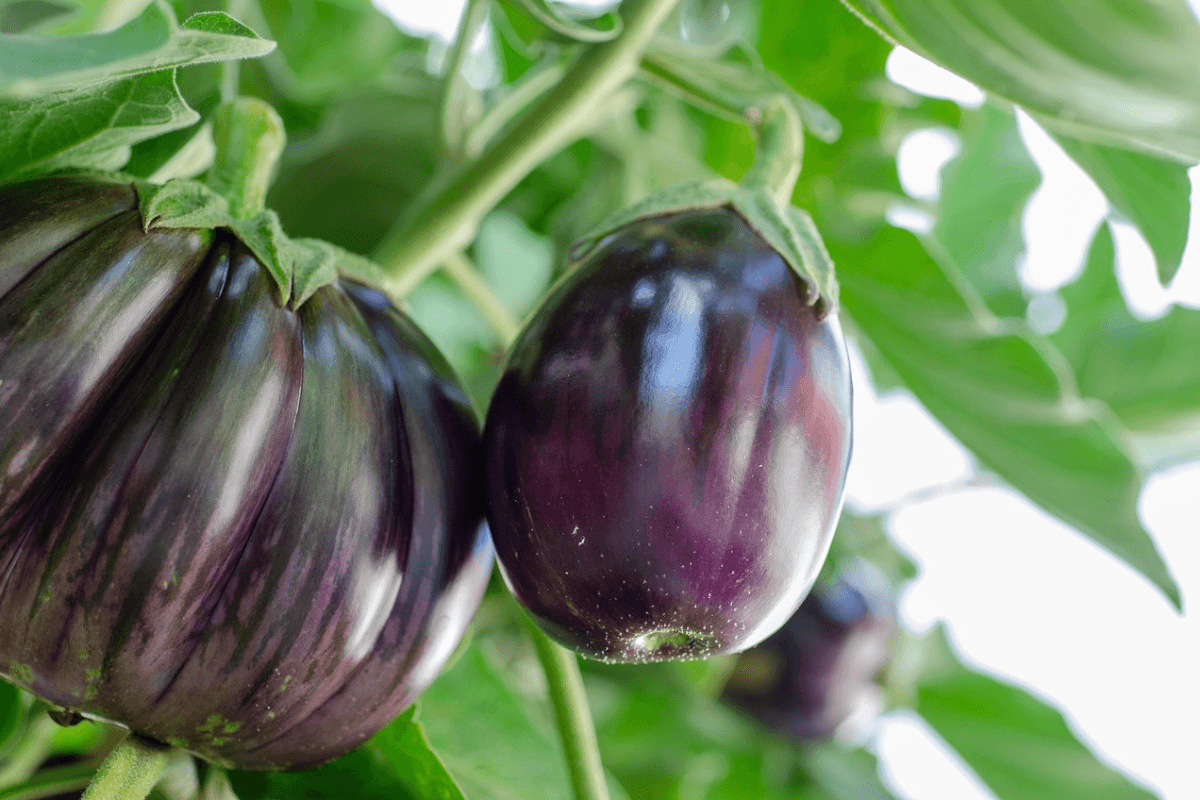
If you’ve ever looked at an American recipe and wondered what on earth an eggplant is, you’re not alone.
Brits know this purple vegetable as an aubergine, while Americans go with eggplant.
The names refer to the same thing, but the American version comes from older varieties that were smaller and white resembling eggs.
It’s a common mix-up in cookbooks and supermarkets.
Examples in sentences:
- “She made a delicious eggplant parmesan.”
- “Grilled eggplant is perfect for summer meals.”
- “I bought an eggplant at the farmer’s market.”
- “Roast the eggplant until it’s soft and golden.”
- “He doesn’t like eggplant because of the texture.”
Zucchini
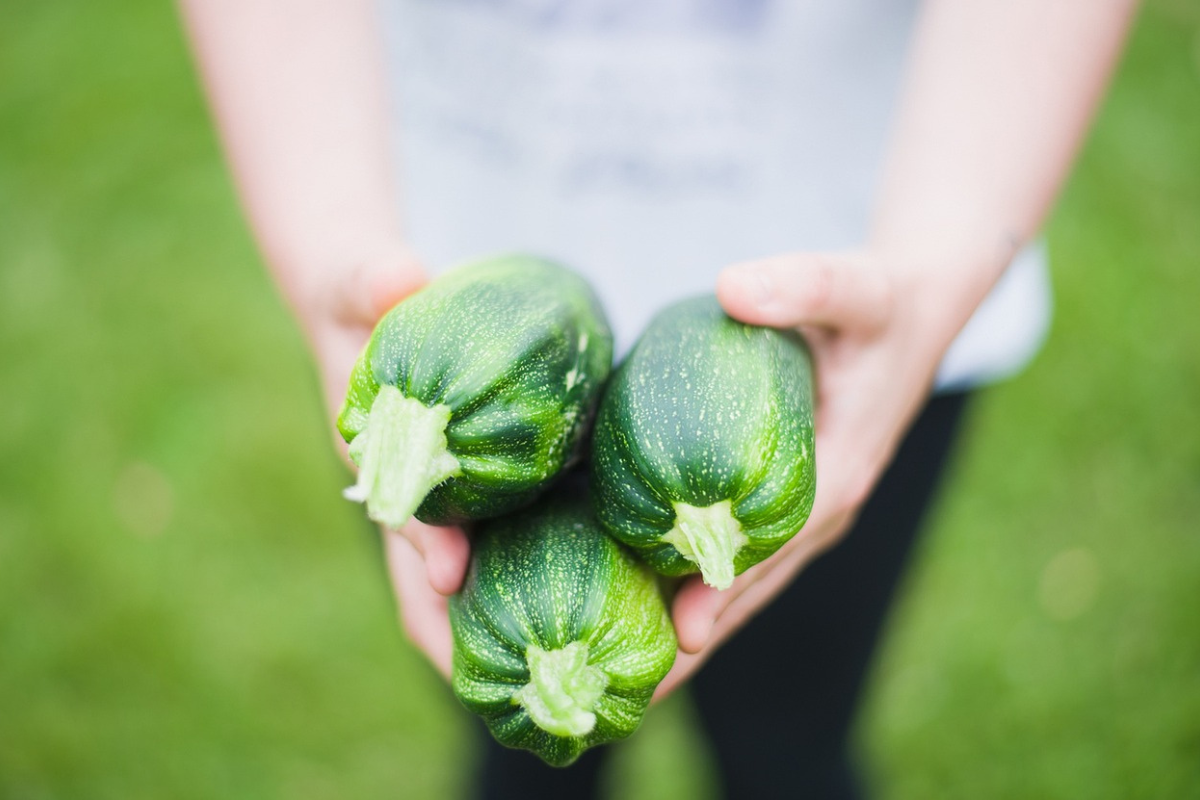
Zucchini and courgette are two names for the same green vegetable but which one you use depends on where you’re from.
In the UK, it’s courgette, following the French influence.
In the US, it’s zucchini, from the Italian word.
Both are correct, but it’s another one of those food words that causes momentary confusion when crossing the Atlantic.
Examples in sentences:
- “I’m making zucchini fritters for lunch.”
- “She added grilled zucchini to the salad.”
- “Zucchini grows easily in the summer garden.”
- “He spiralised a zucchini to use as pasta.”
- “Do you want zucchini or mushrooms on your pizza?”
Trunk
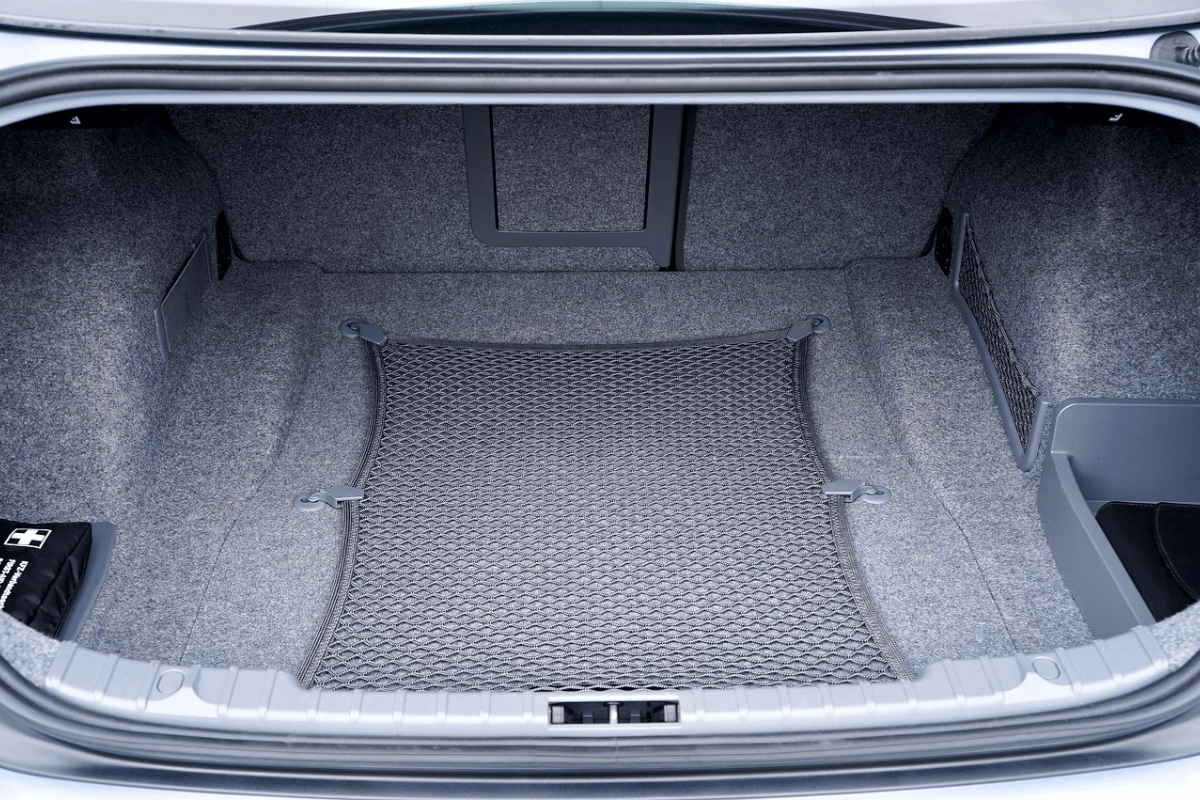
In British English, the back storage compartment of a car is the boot.
But in American English, it’s called the trunk.
The word might bring to mind a big old suitcase or even an elephant’s nose, which is part of the confusion.
Still, if someone in the US tells you to pop the trunk, they’re not talking about luggage.
Examples in sentences:
- “Put the groceries in the trunk, please.”
- “He opened the trunk to grab the suitcase.”
- “The spare tyre is in the trunk.”
- “She found an old map tucked in the trunk.”
- “They loaded the camping gear into the trunk.”
Entrée
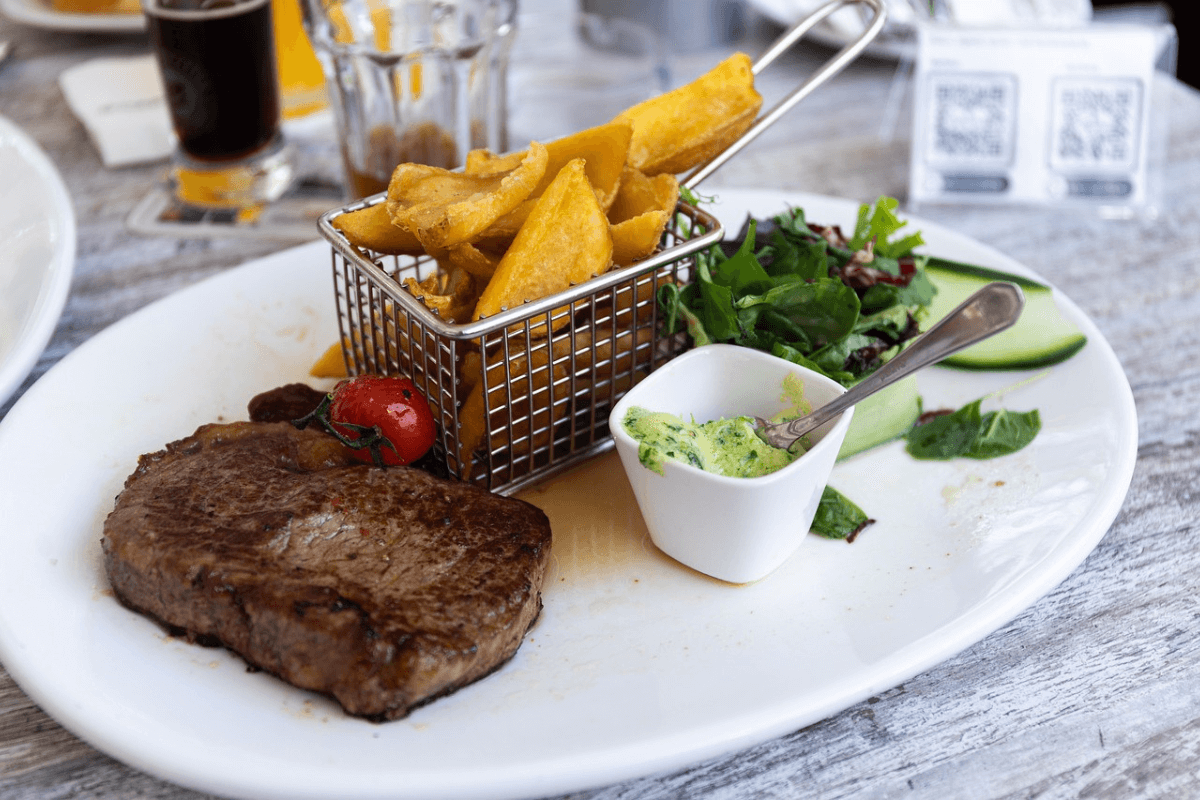
This one catches a lot of Brits off guard when dining in America.
In the UK, “entrée” is usually understood to mean a starter or appetizer, thanks to its French roots.
But in the US, it refers to the main dish of the meal.
So if you’re expecting something small before your main, you might be in for a surprise.
Examples in sentences:
- “For my entrée, I’ll have the steak, please.”
- “The entrée comes with two sides.”
- “She ordered the chicken entrée with mashed potatoes.”
- “What are your entrée options tonight?”
- “The menu lists entrées separately from appetisers.”
Faucet

When an American mentions a faucet, they’re simply talking about a tap the thing water comes out of in your kitchen or bathroom.
The word “faucet” isn’t used much in the UK, so it can sound oddly formal or even industrial to British ears.
But in American homes, it’s the everyday term.
It’s the same water just a different word.
Examples in sentences:
- “Turn off the faucet when you’re done brushing.”
- “The faucet in the kitchen is leaking.”
- “He replaced the old faucet with a new one.”
- “She left the faucet running by mistake.”
- “Is the hot water coming from this faucet?”
Gas

For Brits, “gas” usually means something that comes out of a pipe or makes you feel bloated.
But in the US, gas is short for gasoline which is what the Brits call petrol.
So when Americans say they’re stopping for gas, they’re not checking the boiler.
It’s one of the most common UK/US language mix-ups, especially when travelling.
Examples in sentences:
- “We need to stop and get some gas.”
- “Gas prices have gone up again.”
- “She filled the tank with gas before the trip.”
- “How far can you drive on a tank of gas?”
- “The car ran out of gas on the highway.”
Skillet

The word “skillet” is common in American kitchens and cookbooks, but in the UK, the same pan is simply called a frying pan.
In the US, it can sometimes refer specifically to a heavy, cast-iron version, but most Americans use “skillet” for any pan used to fry or sauté food.
For Brits, hearing about skillets in recipes might sound a bit rustic or unfamiliar — but it’s just a pan.
Examples in sentences:
- “Heat the oil in a large skillet over medium heat.”
- “She cooked the bacon in a cast-iron skillet.”
- “The recipe calls for a non-stick skillet.”
- “Transfer the chicken to a hot skillet.”
- “You’ll need a skillet for this one-pan meal.”
Drugstore

The word “drugstore” can sound a bit dramatic to British ears, but in the US it’s completely normal.
It refers to a place where you buy medicine, toiletries, and often snacks or cosmetics, much like a chemist in the UK.
Big American chains like CVS or Walgreens are classic examples.
You’re not buying anything dodgy, it’s just toothpaste and paracetamol.
Examples in sentences:
- “She popped into the drugstore to get cold medicine.”
- “You can pick that up at any drugstore.”
- “He works part-time at the local drugstore.”
- “The drugstore also sells magazines and snacks.”
- “Is there a drugstore near the hotel?”
Cell phone

Americans talk about their cell phones, while Brits stick with mobiles.
The term “cell” comes from the cellular network technology behind it, but it’s rarely used in everyday UK speech.
So if someone asks if you’ve got a cell, they’re not talking about prison.
It’s just another word for that thing we’re all glued to.
Examples in sentences:
- “I forgot my cell phone at home.”
- “She’s always on her cell phone.”
- “Can I borrow your cell for a minute?”
- “Cell phone reception is terrible out here.”
- “He upgraded to a new cell phone last week.”
Trash can
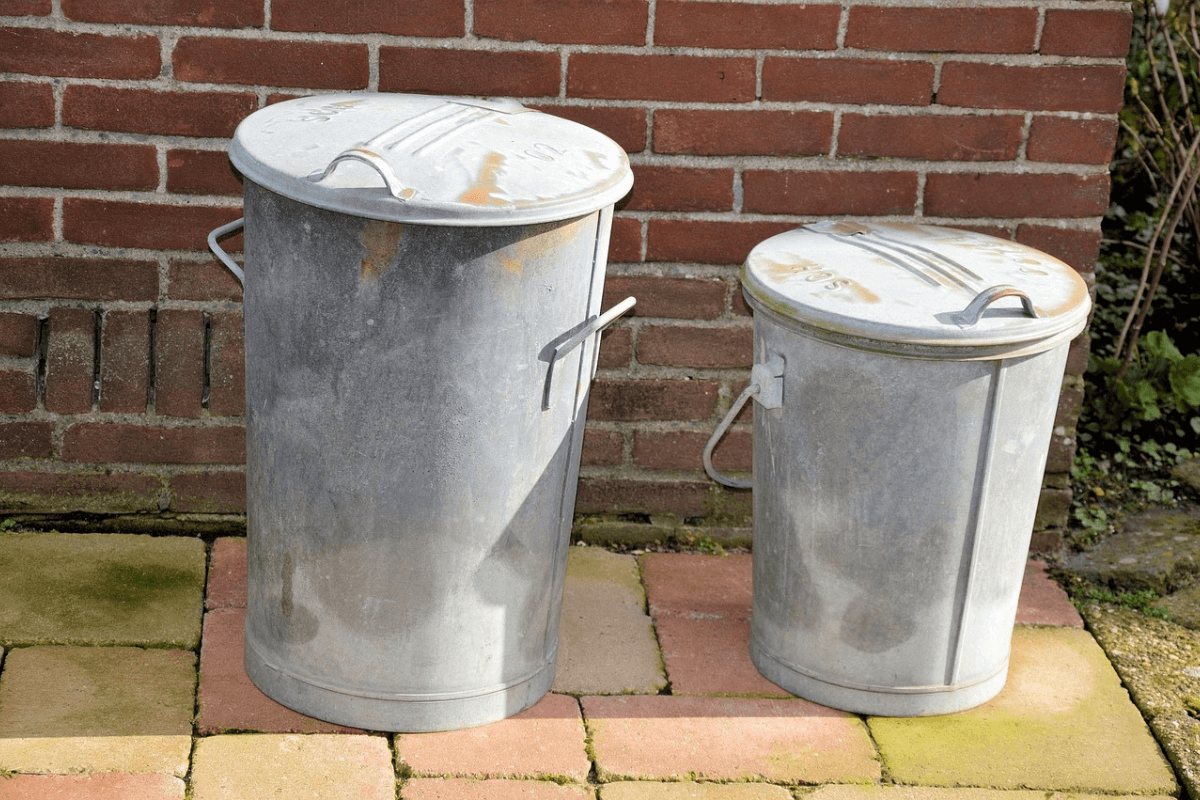
In the UK, you throw rubbish in the bin.
In the US, it goes in the trash can.
The word “trash” is more common than “rubbish” in American English, and “can” just refers to the container.
It’s a simple swap, but it often stands out in conversation, especially when someone talks about taking out the trash.
Examples in sentences:
- “He took the trash can out to the curb.”
- “Is there a trash can in this room?”
- “The trash can’s overflowing.”
- “She threw the wrappers in the trash can.”
- “Don’t forget to line the trash can with a bag.”
Math

This one always sparks debate.
Americans say “math,” while Brits say “maths” which is short for mathematics.
The plural-sounding version feels more natural to UK ears, since “mathematics” ends with an “s.”
Neither is wrong, but it’s one of those subtle language quirks that instantly gives away where someone’s from.
Examples in sentences:
- “I was never good at math in school.”
- “She’s studying math at university.”
- “He’s got a math test tomorrow.”
- “Math is my favourite subject.”
- “They offer advanced math classes in high school.”
Cookie
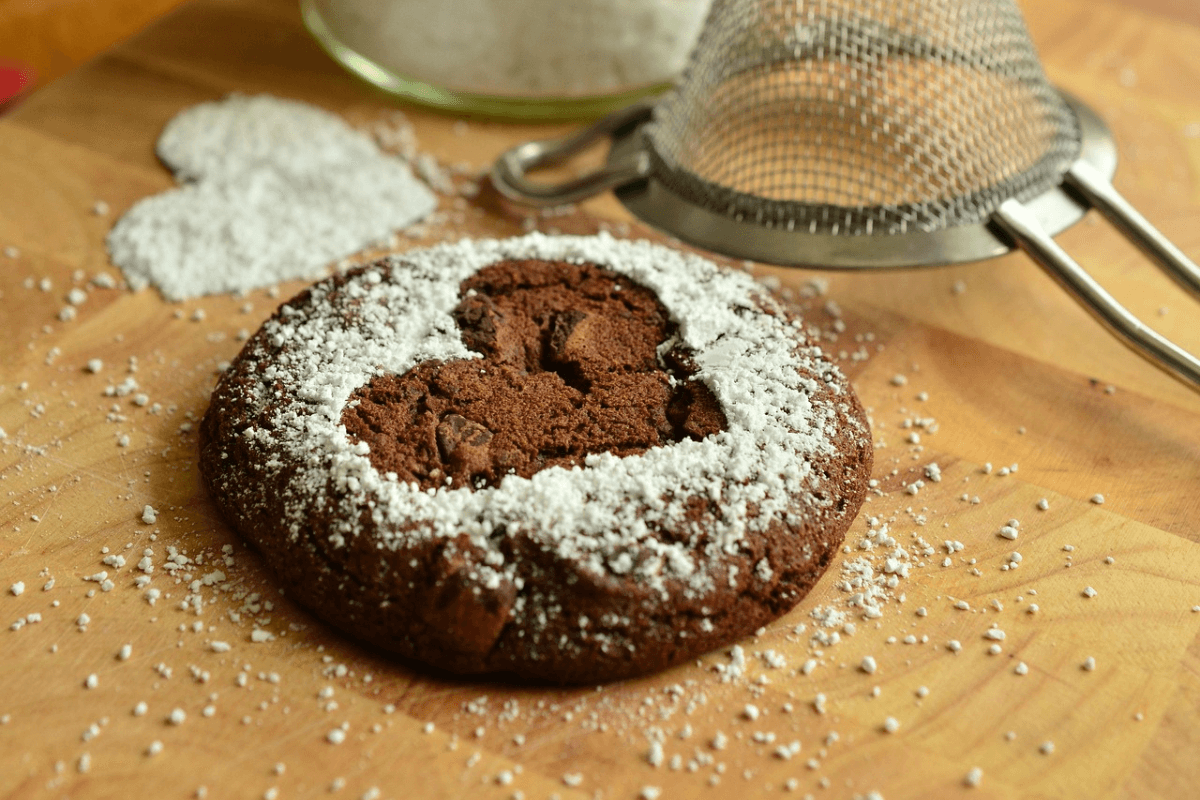
In American English, “cookie” is the catch-all word for sweet baked treats.
In the UK, most of these would be called biscuits, unless they’re soft and chewy, in which case “cookie” has started to catch on.
Generally in Britain, if it’s hard and crunchy, it’s a biscuit and if it’s soft and chewy, it’s a cookie/
In Britain the word cookie brings to mind a very specific kind of biscuit, often involving chocolate chips and being slightly underbaked.
Confusion usually starts in the snack aisle.
Examples in sentences:
- “Would you like a cookie with your coffee?”
- “She baked a fresh batch of chocolate chip cookies.”
- “The cookie crumbled all over the floor.”
- “Oatmeal raisin cookies are underrated.”
- “He grabbed a cookie from the jar on the counter.”
Restroom
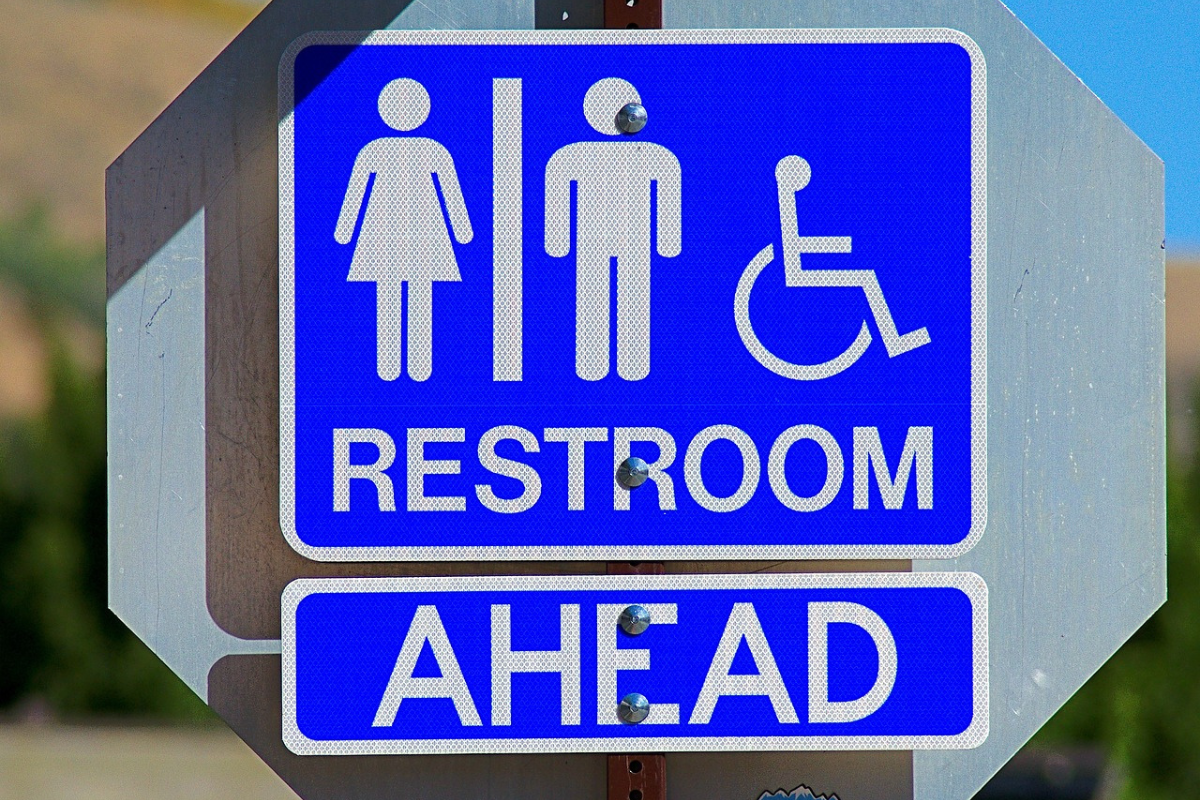
“Restroom” might sound overly polite or even misleading to British ears you’re not going there to rest, after all.
In the US, however, it’s the standard term for a public toilet, especially in shops, restaurants, or airports.
Alternatives like “bathroom” or “washroom” are also used, but “restroom” is probably the most common.
Brits asking for the toilet might get odd looks unless they switch vocab.
Examples in sentences:
- “Excuse me, where’s the restroom?”
- “The restroom is down the hall on the left.”
- “I need to use the restroom before we leave.”
- “The restaurant has very clean restrooms.”
- “There’s a queue for the women’s restroom.”
Realtor

In the UK, they’re called estate agents, but in the US, the term is “realtor” pronounced with two syllables: “real-tor.”
It’s a trademarked term used for professionals who are members of the National Association of Realtors, though most people use it to refer to any property agent.
For Brits, it can sound oddly formal or even made-up.
But in the US, it’s entirely standard.
Examples in sentences:
- “We hired a realtor to help us find a house.”
- “Our realtor showed us five properties today.”
- “She became a licensed realtor last year.”
- “Call your realtor if you want to make an offer.”
- “The realtor handled all the paperwork for the sale.”
Overpass

In American English, an overpass is a road or bridge that goes over another road or railway.
Brits typically call the same structure a flyover.
The meaning is clear once you see it, but hearing the word “overpass” in directions or traffic reports might make a British listener pause.
It’s one of those subtle infrastructure terms that varies depending on where you are.
Examples in sentences:
- “Take the next exit after the overpass.”
- “The accident happened just before the overpass.”
- “They’re building a new overpass to ease congestion.”
- “The overpass was closed for maintenance.”
- “You can walk safely over the traffic using the pedestrian overpass.”
Sidewalk

In American English, the pavement is what you walk on, not what you drive on.
Brits call it the pavement, while Americans use “sidewalk,” which makes perfect sense when you think about it.
It’s literally a walk at the side of the road.
It’s one of those small but noticeable differences that pops up often in travel guides or directions.
Examples in sentences:
- “Stay on the sidewalk — it’s safer.”
- “They walked hand in hand down the sidewalk.”
- “The kids were chalking pictures on the sidewalk.”
- “Mind the ice on the sidewalk this morning.”
- “The sidewalk was closed for repairs.”



what do the Brits call a cigarette?